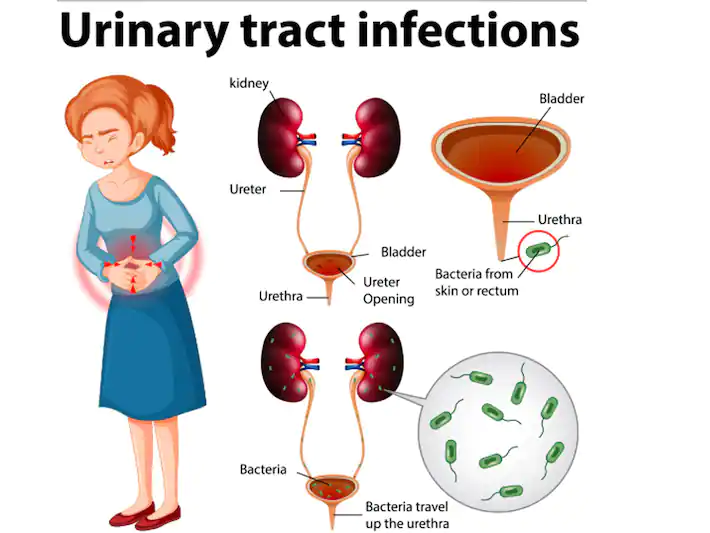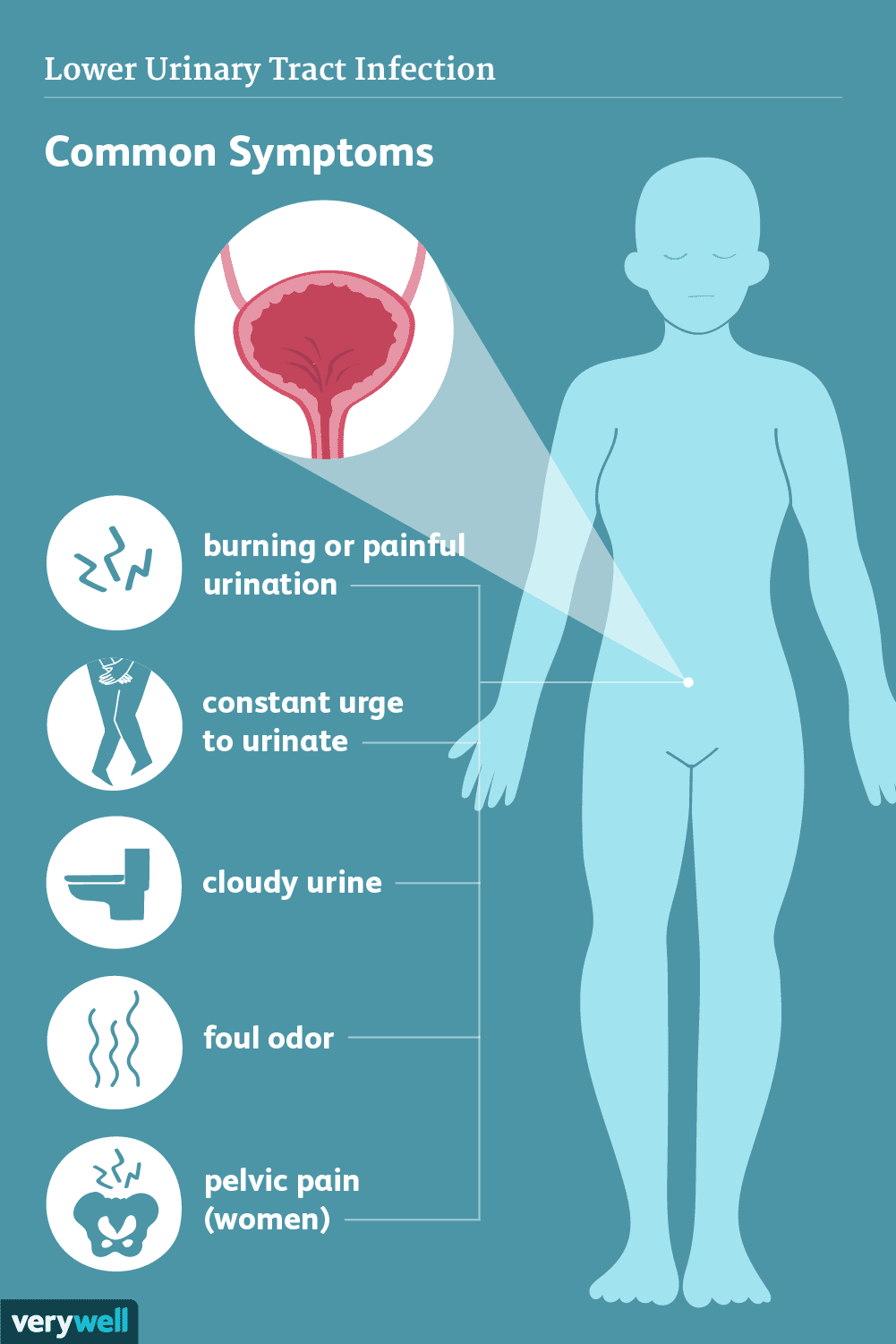Urinary tract infection
Urinary tract infections are the most common bacterial infection.
Urinary tract infection (UTI) is a collective term that describes any infection involving any part of the urinary tract, namely the kidneys, ureters, bladder and urethra.
- Infection of the lower urinary tract (urethra/urinary bladder ) is termed as lower UTI
- Infection of upper urinary tract /kidneys is termed as Pyelonephritis or upper UTI.
- Approximately 50% of women experience a urinary tract infection during their lifetime,with 10% experiencing frequent infections.
- The prevalence of UTI increases with age.
Why Urinary Tract Infection (UTI) occurs?
Most infections are caused by ascending fecal flora or fromvaginal infection into periurethral area and baldder.

Known and possible age-related risk factors for recurrent urinary tract infection (UTI) in women
Young and premenopausal women
- Sexual intercourse
- Use of spermicide
- A new sexual partner
- A mother with a history of UTI
- History of UTI during childhood
Postmenopausal and elderly women
- History of UTI before menopause
- Urinary incontinence
- Atrophic vaginitis due to estrogen deficiency
- Cystocele
- Increased post-void urine volume
- Blood group antigen urine secretory status
- Urine catheterisation and functional status deterioration in elderly institutionalised women.
The most common pathogen is Escherichia Coli bacteria.Other include Klebsiella, staphylococcus,enterococcus, Proteus mirabilis, Pseudomonas bacterias.
What are the symptoms?
- Pain while urination
- Increased urinary frequency
- Urinary uregncy
- Blood in urine
- Lower abdominal pain
- Fever with chills.

What laboratory test is required?
- Urine routine and microscopic examination
- Urine culture examination
- Cbc
- C-reactive protein
- Ultrasound of abdomen and pelvis.
What is Recurrent UTI?
When there is >2 infection in a 6 month period or 3 or more infection in a year it is called Recurrent UTI.
How to treat UTI?
Antibiotic is main therapy.it should be given according to culture and sensitivity report .
The overuse of antibiotics can have long-term negative consequences, such as damage to the normal, healthy bacteria in your urinary tract, and possibly contribute to the development of antibiotic-resistant strains of bacteria
- Nitrofurantoin (100mg) twice daily
- Norfloxacin 250mg twice daily
- Fosfomycin sachet
- In severe cases: Injection Amikcin iv daily
- Injection ceftriaxone 1gm iv daily
Potassium alkalizer helps in rescuing the burning symptoms.
- Other health supplements:
- D-mannose
- Cranberry
- Burberry leaf
- Green tea
- Garlic